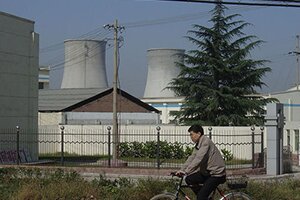A rapid growth in transport demand and related Greenhouse Gas (GHG) emissions become a growing challenge for China. To reduce the dependency on oil and to protect the environment, the country’s government promotes electric vehicles. But as Chinas power market is still relying on fossil fuels, the environmental impacts of electric mobility remain uncertain. As more electric vehicles mean a higher power demand, it is essential to understand the interaction with the power sector.
To gain comprehensive insights into the Chinese electricity market a workshop was carried out to evaluate the status quo and future development of the power generation system in China. As a result the potential interactions between electric mobility and power sector were identified.
Having had inputs from Chinese, as well as German expert the workshop provided interesting insights into the electricity sectors of China and Germany against the background of the introduction of EVs. Although the market penetration of EVs in both countries is still rather small, the models come to the following conclusions: The potential of GHG emission reduction depends on the power generating technologies and is largely influenced by the “merit order”, which is a method of ranking available sources of electricity generation sources in ascending order of their short-run marginal costs of production. This kind of ranking mechanism could not be worked out for China so far. In the current stage, EVs cannot archive GHG emission reductions compared to conventional vehicles; the models show that in 2010 PM2.5 and SO2 emissions of EVs are significantly higher, but shifted in location. In the long-term, however, GHG emissions can be reduced significantly with EVs.
The Sino-German project “Electro-Mobility and Climate Protection in China” aims to support decision-makers in China in gaining access to the conceptual and technical background and strategies of introducing electric vehicles in China in an environmentally sound manner. One important task is analyzing the environmental impacts of electric vehicle promotion policies in China and the identification of relevant measures to optimise the climate protection potential.



